Rich China tycoons park family offices in Singapore
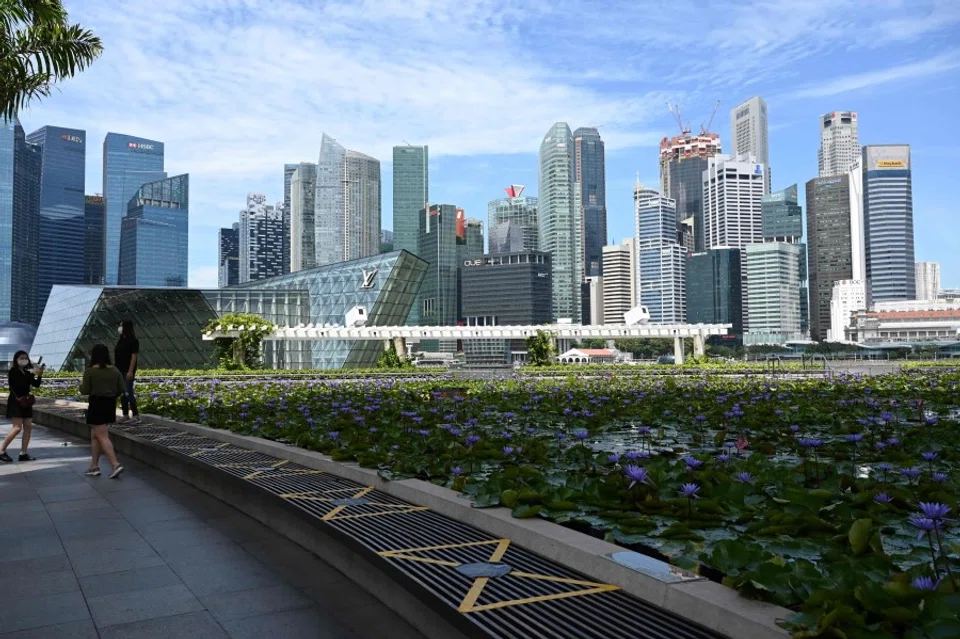
Maegan Zhao, 37, came to Singapore with her young son three years ago to assess its living and education environment. She decided to enrol him in United World College, where he will start studying next year.
Ms Zhao's family is involved in the business of private equity and mergers and acquisitions. A large part of their investments are focused on opportunities in Beijing and Shenzhen, with property holdings in Hong Kong as well.
She had originally wanted her son to attend school in Hong Kong. But having considered the prevalence of Cantonese and traditional Chinese characters in Hong Kong, she decided that Singapore was more ideal due to its focus on bilingual education.
Having settled on where her son should attend school, Ms Zhao decided to move to Singapore too. She transferred some of the family's assets from Hong Kong to Singapore and set up a single family office (SFO).
"I decided to incorporate our family office here primarily to safeguard our assets and their value," Ms Zhao told Lianhe Zaobao. "Singapore is also the economic high ground of Southeast Asia, the vantage point to the region gives us a clearer view of the investment opportunities."
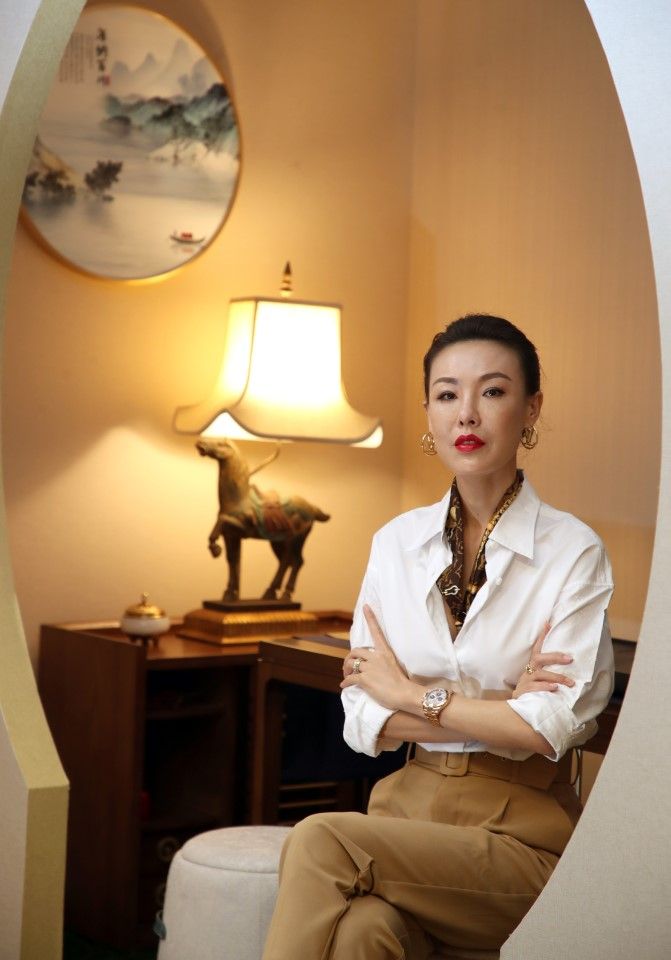
For instance, there are more opportunities to come into contact with the hi-tech companies in the region when she is in Singapore, than if she were to be in China.
Ms Zhao is not alone. In recent years, there have been more families from China like hers who have decided to set up their family offices in Singapore. Many chose to keep a low profile and are seldom featured in the media.
Among the few high-profile individuals are Haidilao co-founders Zhang Yong and his wife Shu Ping, who have been named the wealthiest Singaporeans for a few years since taking up citizenship in 2018. Ms Shu was reported to have set up Sunrise Capital Management, an SFO where she is its sole shareholder and director.
Spike in family offices
Singapore is home to a total of 400 SFOs as at the end of last year, according to the Monetary Authority of Singapore (MAS). And banks here testify to the growth.
"In the past three years, we have seen double-digit growth in clients from the Greater China region," said Lee Woon Shiu, regional head of wealth planning, family office & insurance solutions at DBS Private Bank.
"We have prioritised our resources into seizing this market opportunity, and we are confident that this upward trend will continue for the next five years."
Three years ago, customers from the Greater China region made up 25-30% of DBS Private Bank's family office clientele. This has now grown to 45%, making the Greater China region the largest of its customer base. The remaining 35% of the bank's family office clientele are from Southeast Asia, while 20% are from Europe and the US.
Joanna Ho, head of wealth planning, Greater China and North Asia at Bank of Singapore, OCBC's private banking arm, said that the number of new customers incorporating family offices in 2020 was at least three times that of 2019. Among them, the most pronounced growth was seen among clients from the Greater China region, which surged three-fold from 2019.
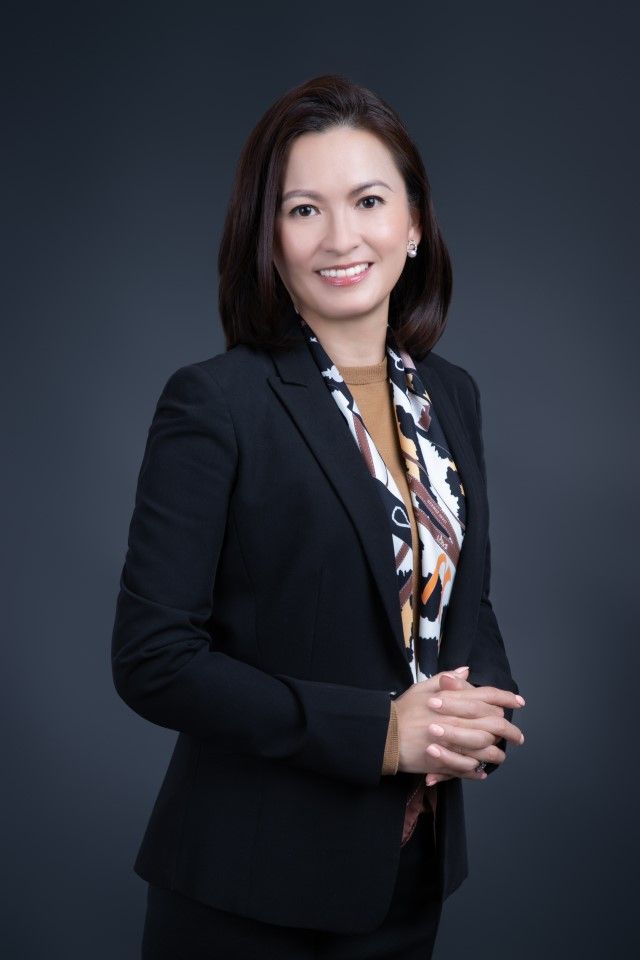
Seeing immense potential in the sector, Helen Wong, OCBC Group CEO, said at the bank's annual general meeting at the end of April that it would expand its family office business significantly.
... when the pandemic eased in the second half of the year, more of the wealthy headed to Singapore. Since July last year, more than 60 have looked into setting up family offices. Among them, 70% were from China. Their initial capital investments are in the range of US$10 million to US$20 million.
Augustus Xu, founder and CEO of SG Royal Group, a firm specialising in providing legal, taxation, and asset management consulting services for family offices, said that the company has assisted more than ten customers with setting up family offices, including Maegan Zhao's.
At the start of the Covid-19 pandemic, when travel became restricted, Mr Xu had thought that business would nosedive. However, when the pandemic eased in the second half of the year, more of the wealthy headed to Singapore. Since July last year, more than 60 have looked into setting up family offices. Among them, 70% were from China. Their initial capital investments are in the range of US$10 million to US$20 million.
Dean Advisory, a wealth management consultancy from China, officially established its Singapore office in September last year.
In the six months since, it has helped ten customers from China set up family offices here. Dean's minimum capital investment requirement is S$5 million, but Lucy Chen, director of Dean Advisory, said this was just a sum that its clients could mobilise in the short term; their actual wealth is far greater, and they tend to raise their investments after operations are on track.
... after the OECD's Common Reporting Standard was adopted by many countries around the world between 2017 and 2019, the advantages of incorporating an asset management company in the British Virgin Islands, Cayman Islands and other tax havens were blunted. - Lee Woon Shiu, DBS Private Bank
Ms Chen said that many are still in the planning stages. Among her clients are some who are looking to make arrangements for their family or children to settle in Singapore. Some wanted to make their decisions only after spending time here. The pandemic had, however, affected cross-border travel, and quarantine requirements would be too disruptive to their work, thereby delaying their plans and decision-making.
Policy strengths
Industry insiders have observed that the surge in the number of Singapore-based family offices set up by the China rich is mainly due to the city state's favourable tax regime and legal environment.
Mr Lee of DBS Private Bank said that after the OECD's Common Reporting Standard was adopted by many countries around the world between 2017 and 2019, the advantages of incorporating an asset management company in the British Virgin Islands, Cayman Islands and other tax havens were blunted. And, to remain a tax domicile at these locations, one also has to hire local employees and meet other operating conditions.
"The implementation of these standards brought about a fundamental change," he said.
"Many people realised that Singapore was a more ideal base. First, because everything is transparent; second, if the value of the assets is high enough, they would be eligible for perpetual tax exemption."
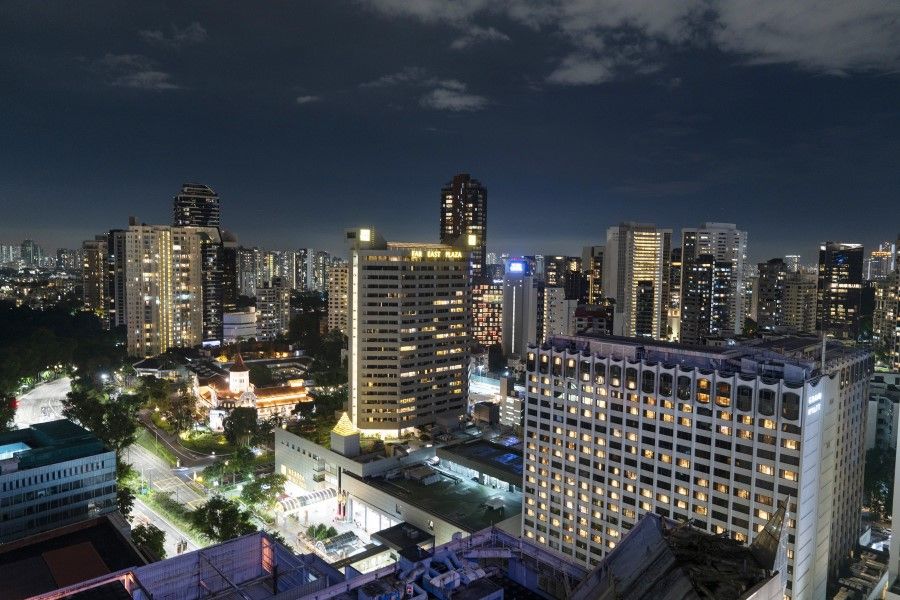
Mr Xu of SG Royal Group said that after the adoption of the Common Reporting Standards, his company's Chinese customers increased significantly in 2019.
To boost Singapore's attractiveness as the location of choice for family offices, MAS and EDB established the Family Office Development Team in 2019.
Under the structure set by MAS, a family office here would be eligible for tax exemption scheme 13R and 13X of the Income Tax Act. Single family offices do not require a capital markets services licence issued by MAS to operate; asset managers of these entities are not required to hold professional financial qualifications and would also be eligible for employment passes.
The Singapore Economic Development Board's Global Investor Programme (GIP) is another channel which foreign entrepreneurs can tap to set up their family offices. However, a net minimum investment of S$200 million is required. Few SFOs have been set up through GIP, said Dino Tan, vice-president of the Family Office Development Team at EDB.
To boost Singapore's attractiveness as the location of choice for family offices, MAS and EDB established the Family Office Development Team in 2019. According to EDB's Mr Tan, the alliance would build a more conducive operating environment; expand the professional capabilities of various professional sectors; and strengthen the connection between SFOs and the local and international markets, so as to facilitate the development of the whole family office ecosystem.
In addition to preferential policies, the independence of the Singapore judiciary has also been considered an advantage internationally.
Director of Zico Insights Law Qiu Yang pointed to an example of an international case that the firm had handled recently. Neither party was a Singaporean entity, and there were no local aspects in the deal. But both parties had insisted on basing their agreement on Singapore laws.
"This is because they believe that Singapore's legal system is more pragmatic, predictable, transparent, stable, and neutral."
Singapore, Hong Kong play complementary roles in wealth management
Hong Kong is the top capital market for Chinese enterprises venturing abroad. Data from the Hong Kong Stock Exchange (HKSE) showed that as at end-March this year, H-share and red-chip companies have a combined market value of over HK$12 trillion (S$2 trillion), making up 23% of the total market value of all companies listed on the HKSE.
But in terms of wealth management, Singapore and Hong Kong are on par, observers said.
"Hong Kong has a vibrant capital market; many customers are looking for experts from Hong Kong to manage their assets," said Ms Ho of Bank of Singapore, OCBC. "Singapore's advantage comes from the dedicated tax incentives that have been launched."
Mr Lee of DBS Private Bank said Hong Kong is rated highly by listed companies, but in the family office sector, its policies had not been as focused, until recently. In comparison, Singapore has shown greater foresight in developing the sector.

The Hong Kong market plays a complementary role in Singapore's family office sector, he added. The wealth of Chinese families is usually built on successful listings in Hong Kong.
As to whether the political turmoil dogging Hong Kong in recent years will make Singapore seem more attractive, Ms Zhao - who moved some of her family's money from Hong Kong to Singapore - was candid in her assessment.
As her family and herself are Mandarin speakers, they had indeed felt some discomfort in Hong Kong in the last couple of years, and she would not feel as secure sending her son to school there.
"Chinese entrepreneurs have a common need to move some of their assets offshore; we also need to pay for the education of our children and our family's living expenses," said Ms Zhao.
"Although the economy in China is developing well, it's ideal to [park] some of the assets offshore, and not have all of it in China. And ensuring the security of these offshore assets is the main reason I am in Singapore."
Commenting on the common observation of the increasing influence that the China's central government wields over Hong Kong, Dean Advisory's Ms Chen said that the impact on the Hong Kong stock market was positive. As the ties between mainland China and Hong Kong become closer, more good Chinese enterprises will choose to list in Hong Kong.
From the perspective of the entrepreneurs, Ms Chen said that the common belief is that Hong Kong's tax regime will become more heavily influenced by China. "They feel uncertain about the existing tax regime - whether it will be changed after 50 years, and this affects their wealth and heritage," she said. "From this point of view, Singapore has a more stable environment."
Singapore is also attractive because of a new legal structure that family offices can tap.
Of late, Ms Zhao has been in discussions with her friends to pool their funds together for joint investments through a variable capital company (VCC).
"We're looking at getting around US$100 million together for private equity and venture capital investment, allocating US$5 to US$10 million for each project," said Ms Zhao.
Launched by the Monetary Authority of Singapore (MAS) and the Accounting and Corporate Regulatory Authority (ACRA) in January last year, the VCC is a flexible framework that can be adopted by a single fund or an umbrella of two or more sub-funds.
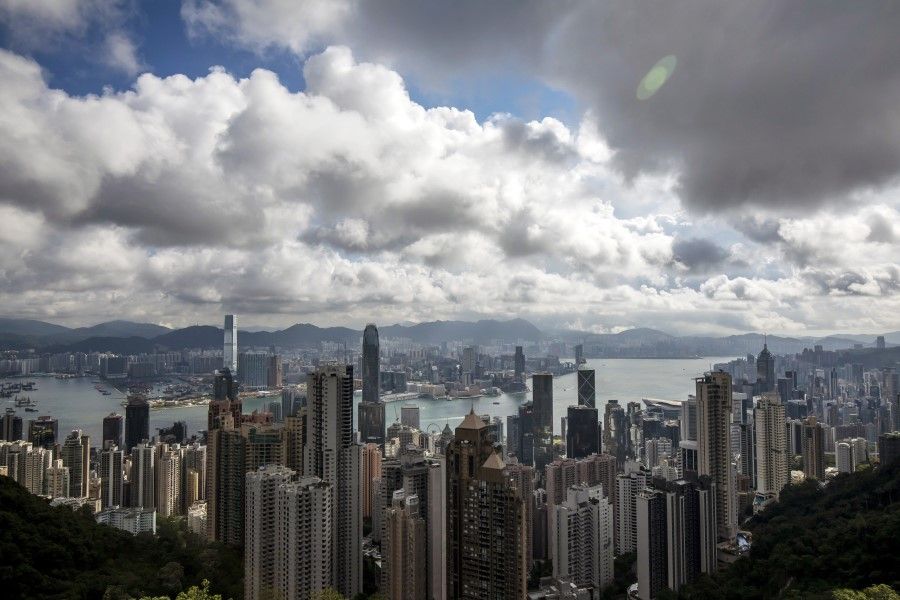
The assets and liabilities of each sub-fund can be separated to safeguard shareholders' interests and enhance creditor protection, at the same time providing more flexibility for asset and risk management. In addition, VCCs are not required to make their list of shareholders public, conferring more privacy to investors.
VCCs are especially attractive to family offices looking at private equity investment, Mr Lee of DBS Private Bank added. Some clients from China told him that many in their networks are also planning to come to Singapore. Many are entrepreneurs who have shifted their focus from publicly listed companies to private equity.
"Private equity investment usually involves a group of investors; under the structure of an ordinary company, the risks will be borne equally by all the shareholders," he said. "The VCC allows a legal basis for the clear demarcation of each shareholder's risk."
Chinese investors are also drawn to the ascent of Southeast Asian tech companies in the last few years, including the likes of SEA Group, Razer, Grab, Gojek and Tokopedia.
Three years ago, while raising capital for a Southeast Asia fund, venture capital firm Vertex Holdings received capital injection from two China-born billionaire investors who had settled in Singapore.
Chua Kee Lock, president and CEO of Vertex Holdings, said that the venture capital market in the region is in a phase of rapid growth, much like what China was 15 years ago. The successful listing of companies like SEA Group and Razer showed wealthy Chinese investors the potential for venture capital funds to make a lucrative exit, encouraging them to direct their investments into such funds.
Singapore is a small market, said Mr Lee of DBS Private Bank, and family offices of investors from China are looking to the entire Southeast Asian region for investment prospects from their base in Singapore, in the hope of expanding outside of their home country. This is where the bank's regional network gives it an edge.
According to Ms Ho of Bank of Singapore, OCBC, the bank's headquarters in Singapore serves as a unique investment pipeline to the region for their family office clients, offering investments in hedge funds, private equity, direct investment and real estate; it also offers clients an Asian perspective on understanding their needs and goals.
